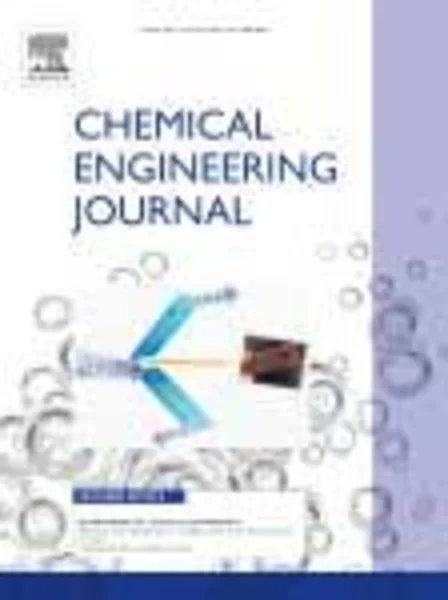-
extended activity of zeolite catalysts with co2 as reaction medium
جزئیات بیشتر مقاله- تاریخ ارائه: 1392/01/01
- تاریخ انتشار در تی پی بین: 1392/01/01
- تعداد بازدید: 573
- تعداد پرسش و پاسخ ها: 0
- شماره تماس دبیرخانه رویداد: -
isooctane is a typically used vehicle fuel component. however, the synthesis of isooctane is limited due to the coking phenomenon when using zeolite catalysts. in this paper the suitability of co2 as a solvent for zeolite based acid catalytic reactions was studied in general and isobutene dimerization in particular. the special focus of this study was to clarify whether using co2 as a solvent reduces coking compared to propane, which was used as a reference solvent in this case. the reaction was carried out in a 50 cm3 continuous stirred tank reactor with two solid acid catalysts, zsm-5 and zsm-23 zeolites. besides the desired dimerization reaction, the oligomerization reaction was also considered. the study also includes determination and discussion on phase conditions. calculations based on thermodynamic methods show that the reaction phase may change during the experiment from a single phase (liquid, gas or supercritical) to a two phase domain (coexistence of vapor and liquid). experiments with the zsm-23 catalyst gave initial isobutene conversion of above 80%. the conversion with co2 was approx. 56% after ∼200 h whereas with propane it was approx. 32% after about 120 h. these results were similar also over the zsm-5 catalyst. the reduced coking tendency results in lower carbon dioxide emissions as the need for burning off the coke in catalyst regeneration is decreased. the results show that carbon dioxide is a potential solvent for industrial purposes as it prolongs the catalyst activity due to a reduced coking tendency.
مقالات جدیدترین رویدادها
-
استفاده از تحلیل اهمیت-عملکرد در ارائه الگوی مدیریت خلاقیت سازمانی و ارائه راهکار جهت بهبود
-
بررسی تاثیر ارزش وجوه نقد مازاد بر ساختار سرمایه شرکت های پذیرفته شده در بورس اوراق بهادار تهران
-
بررسی تأثیر سطح افشای ریسک بر قرارداد بدهی شرکت های پذیرفته شده در بورس اوراق بهادار تهران
-
بررسی تأثیر رتبه بندی اعتباری مبتنی بر مدل امتیاز بازار نوظهور بر نقد شوندگی سهام با تأکید بر خصوصی سازی شرکت ها
-
تأثیر آمیخته بازاریابی پوشاک ایرانی بر تصویر ذهنی مشتری پوشاک ایرانی (هاکوپیان)
-
تاثیر مدارس طبیعت در نهادینگی فرهنگ زیست گرایی جامع بشری
-
مقایسه عوامل مؤثر بر عدم گرایش به نگارش مقالات علمی از دیدگاه اعضای هیأت علمی علوم پایه و بالینی دانشگاه علوم پزشکی همدان
-
بررسی قابلیت لحیم کاری سخت هاردمتال تنگستن کاربید کبالت به فولاد ابزار
-
towards a steady forming condition for radial–axial ring rolling
-
contraction behaviors of dental composite restorations — finite element investigation with dic validation
مقالات جدیدترین ژورنال ها
-
مدیریت و بررسی افسردگی دانش آموزان دختر مقطع متوسطه دوم در دروان کرونا در شهرستان دزفول
-
مدیریت و بررسی خرد سیاسی در اندیشه ی فردوسی در ادب ایران
-
واکاوی و مدیریت توصیفی قلمدان(جاکلیدی)ضریح در موزه آستان قدس رضوی
-
بررسی تاثیر خلاقیت، دانش و انگیزه کارکنان بر پیشنهادات نوآورانه کارکنان ( مورد مطالعه: هتل های 3 و 4 ستاره استان کرمان)
-
بررسی تاثیر کیفیت سیستم های اطلاعاتی بر تصمیم گیری موفق در شرکتهای تولیدی استان اصفهان (مورد مطالعه: مدیران شرکتهای تولیدی استان اصفهان)
-
رابطه اشتیاق شغلی و رشد حرفه ای معلمان بر بالندگی سازمانی در معلمان مقطع اول متوسطه شهرستان خنجین
-
تاثیر تمرکز بازار حسابرسی، تخصص حسابرس در صنعت و تجربه کمیته حسابرسی بر قیمت گذاری حسابرسی
-
مدل سازی خرید مد آنلاین: ارزیابی مبتنی بر خرید حر فه ای مد آنلاین
-
راهکارهایی جهت پرورش ادراک موسیقایی دانش آموزان پایه ابتدایی (مطالعه موردی: بازی و سرگرمی)
-
بررسی نقـش شاخص های بازاریابی در توسعه صنعت گردشگری ورزشی




سوال خود را در مورد این مقاله مطرح نمایید :